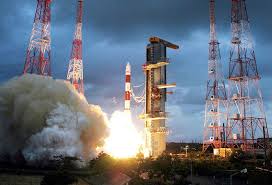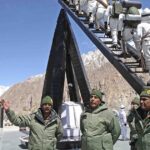
SOURCE: TNN
In another significant step to open its doors to private players, Indian Space Research Organisation (Isro) said it “will soon allow some startups to test their launch vehicle systems at its facilities and will allow some of them to set up their own launchpads at Sriharikota”.
TOI had earlier reported that Isro is likely to allow private players to have their own launchpads.
Speaking to TOI, Isro chairman K Sivan said, “Some 2-3 startups are in an advanced stage of talks with us for testing their launcher systems like engine and navigation systems at Isro facilities. We have agreed to allow them to use our testing facilities like at the Mahendragiri centre. We have also agreed to allow them to set up their own launchpads at Sriharikota. But that stage will come later as it (developing a launcher) is a long way to go.”
Sivan said some startups are busy in making satellites and some are making launchers and they will together work out a deal to launch their satellites from their own launchpads. Isro will provide all the technical expertise and share facilities they need in this venture.
He also said the Centre’s decision to ban the import of communication satellites under the Atmanirbhar Bharat drive will open up big opportunities for the private sector. Speaking at a webinar on “Unlocking India’s Potential In Space Sector” on Thursday, the Isro chief said, “We are extremely happy that the government’s import embargo on communication satellites under the self-reliant India drive will boost indigenisation. I am sure it will continue and we are going to depend more and more on self-reliant (products). It will provide a huge opportunity not only for Isro, NewSpace India Ltd (NSIL) but also for the private sector.”
Giving a clearer picture of the composition of the new space board, IN-SPACE, R Umamaheshwaran, Isro’s scientific secretary, during a webinar said that “the board will have five directorates and will oversee space activities by private players, integrated launch manifest, launch activities and sharing of Isro facilities”. The five directorates will be dealing with technical, legal, safety and security, monitoring and activity promotion aspects of the space sector. It will also promote handholding of industries, building of launch vehicles and satellites by the industry, and sharing of Isro facilities.
Isro, on the other hand, will focus on development of new technologies, identifying cutting-edge technology to be developed by the industry, allowing sharing of its facilities to the private sector and offering its technology spin-offs for mass production, he said.
On the expanded role of NSIL, Maheshwaran said, “The PSU will own satellites and provide space-based services on a commercial basis. It will build satellites and launch them as per demand, get launch vehicles built through the industry, promote satellite building by the industry and will facilitate technology transfer.”






